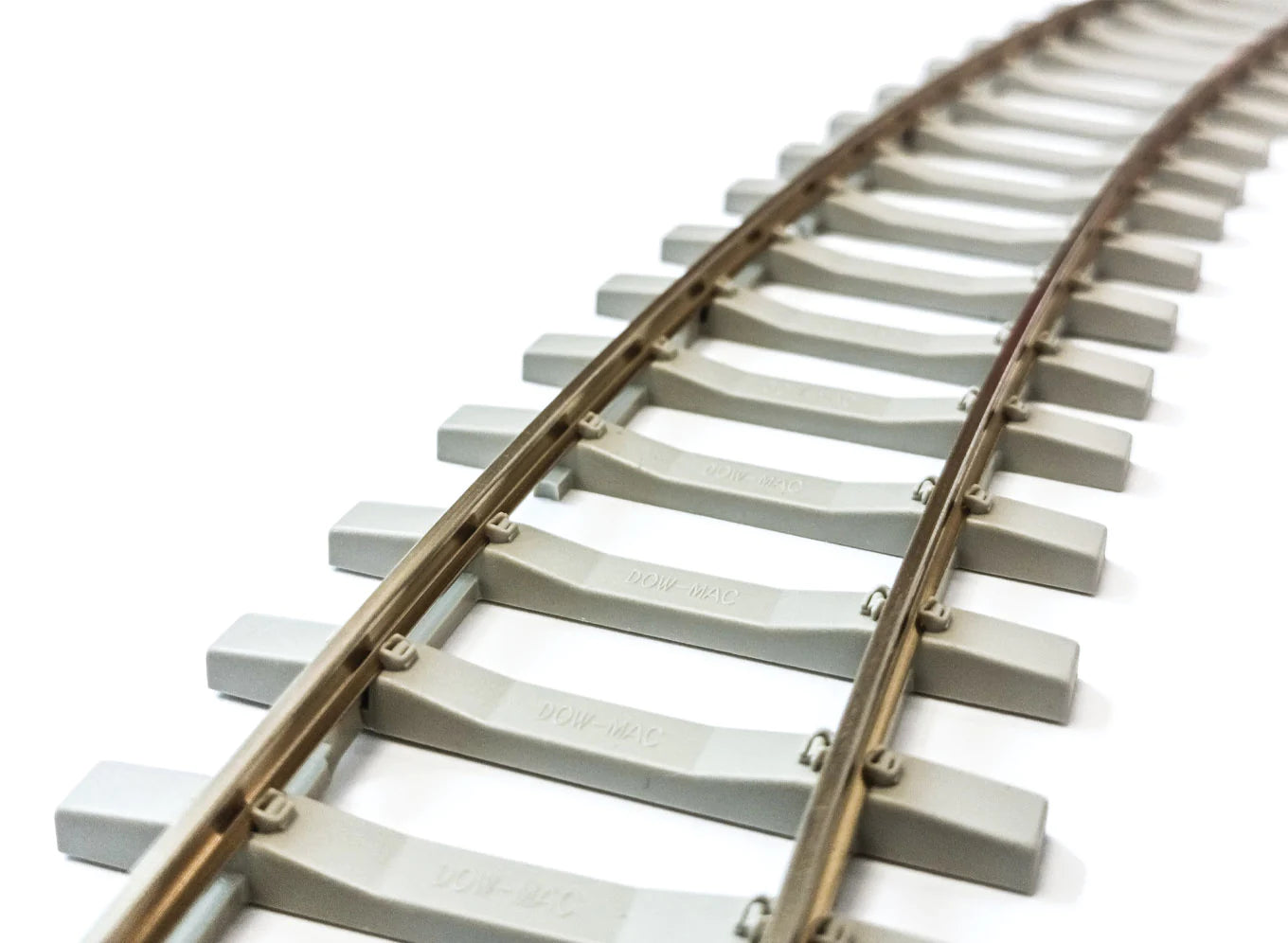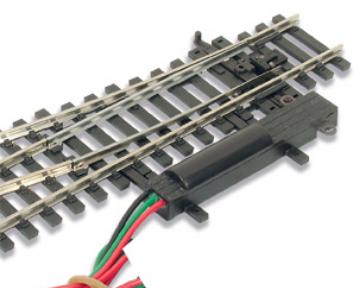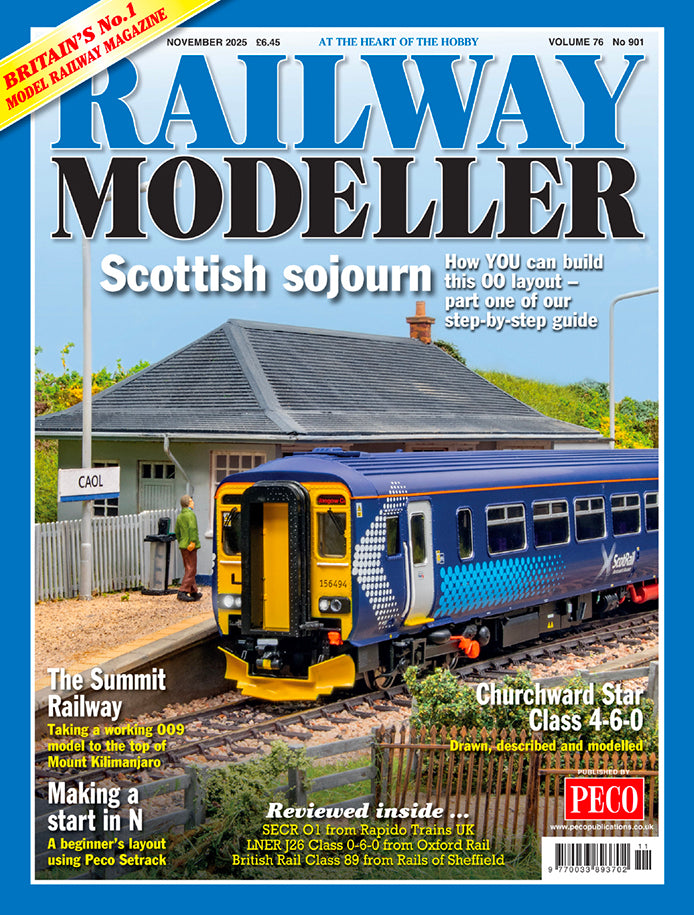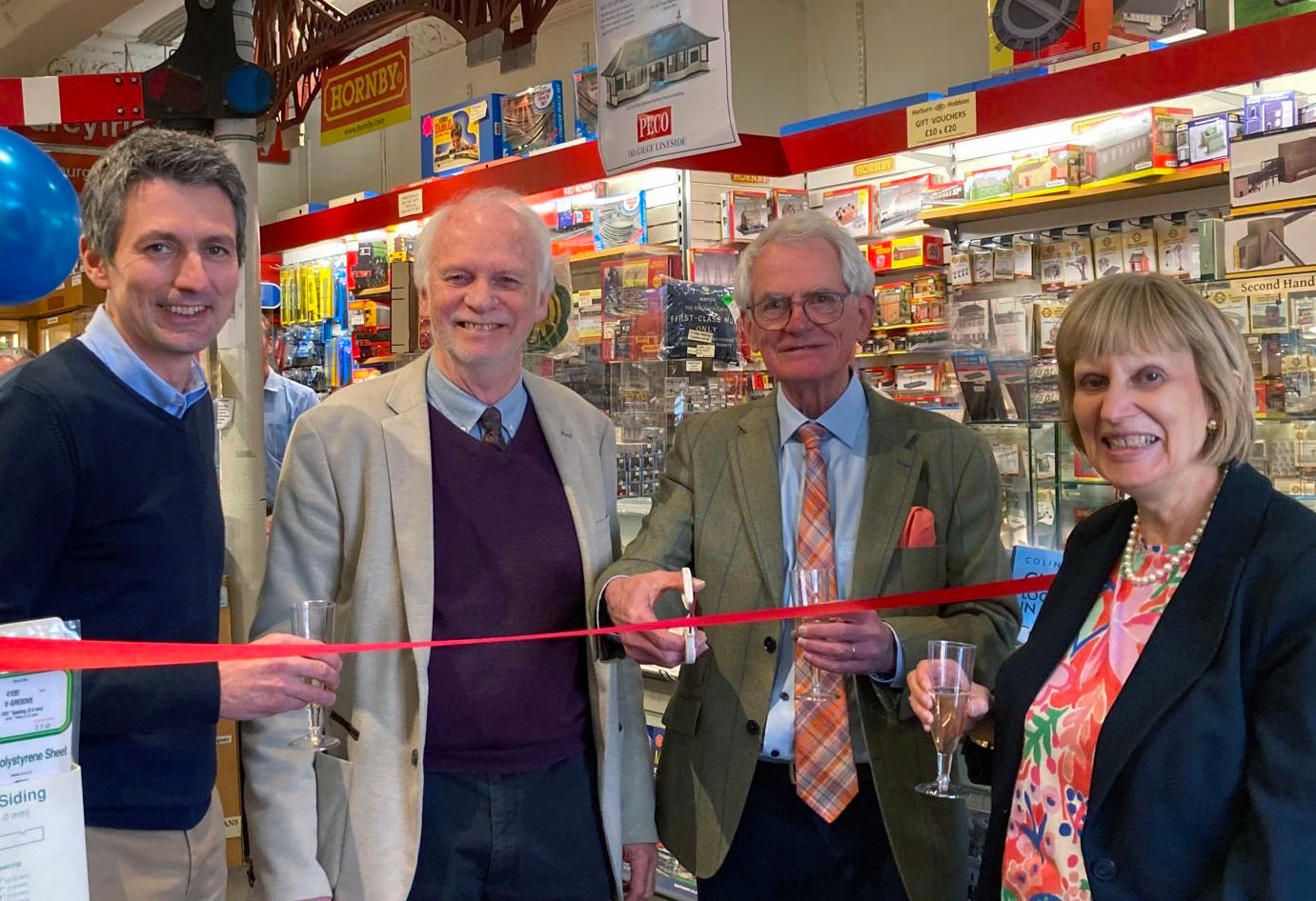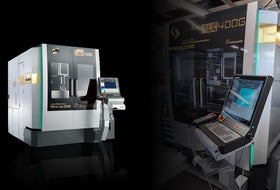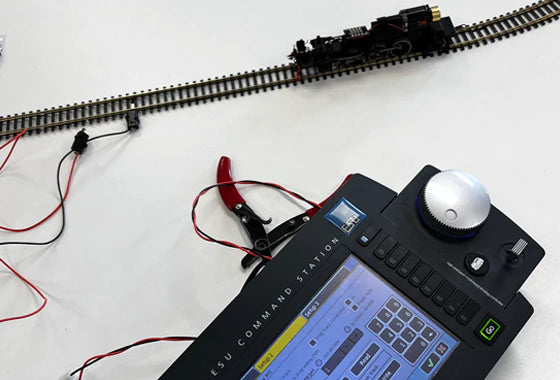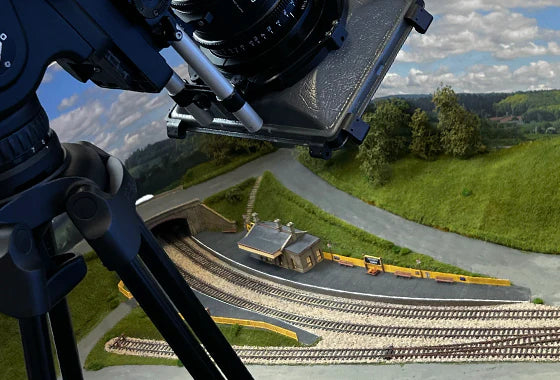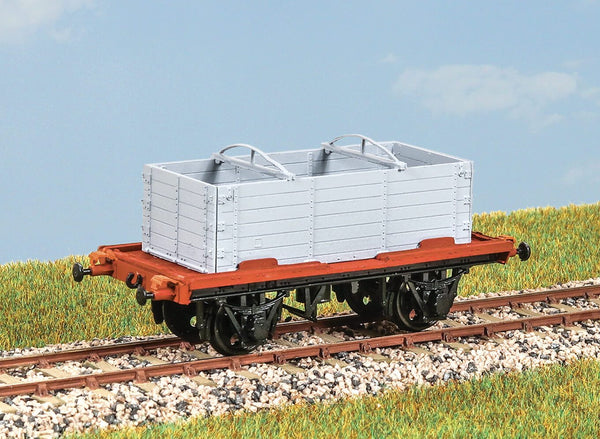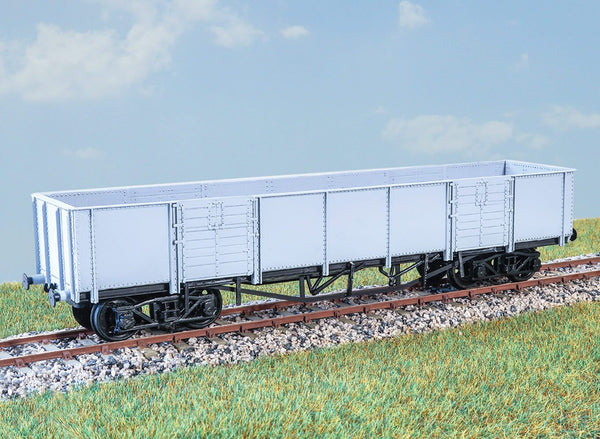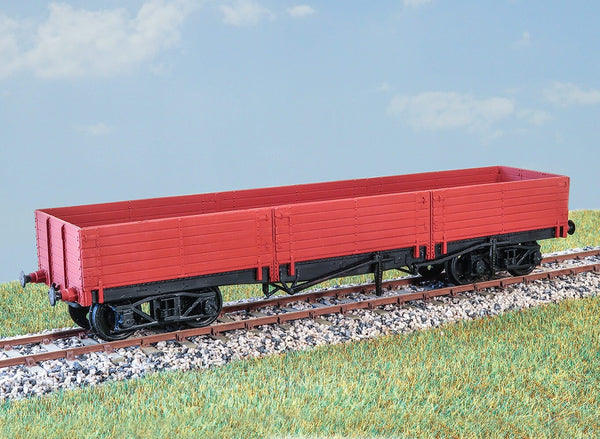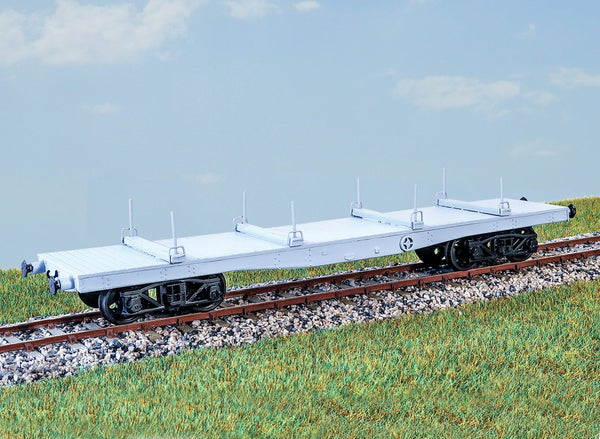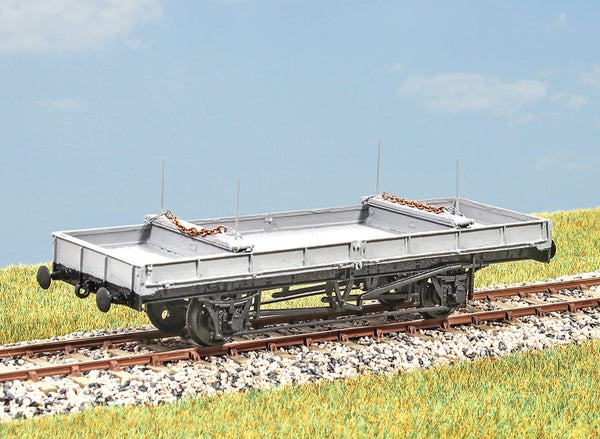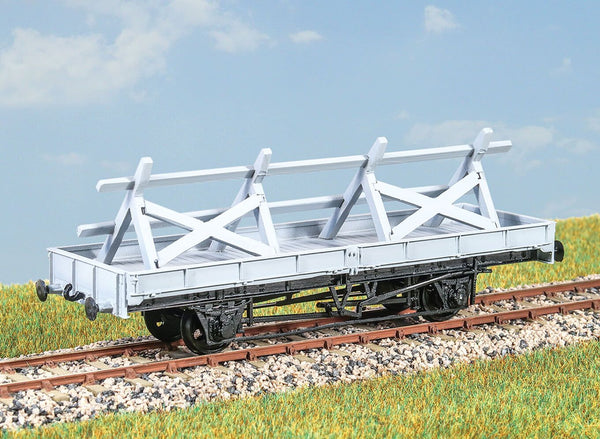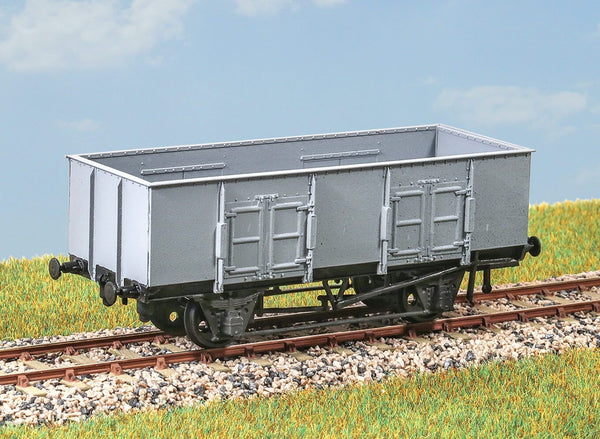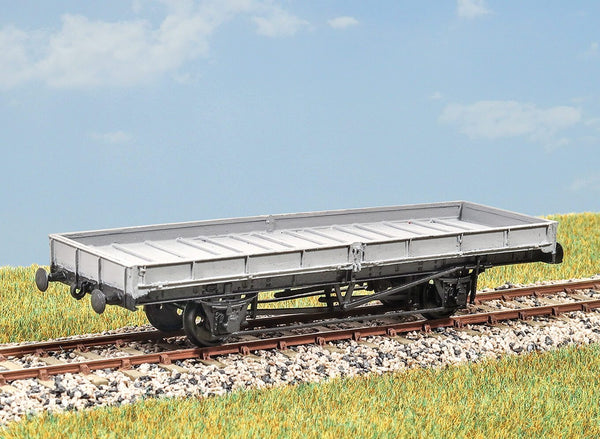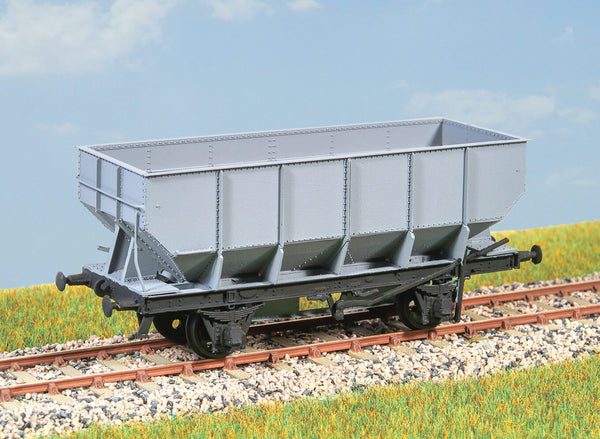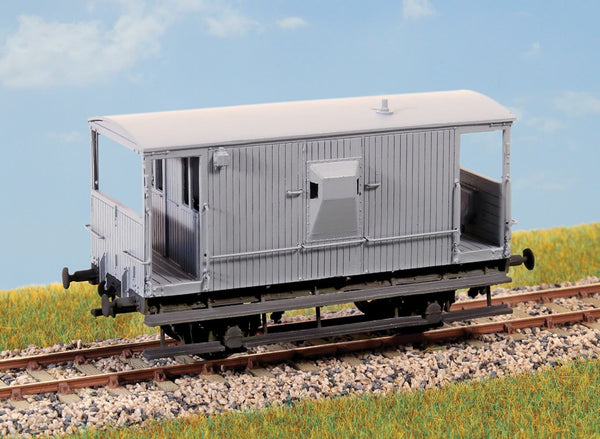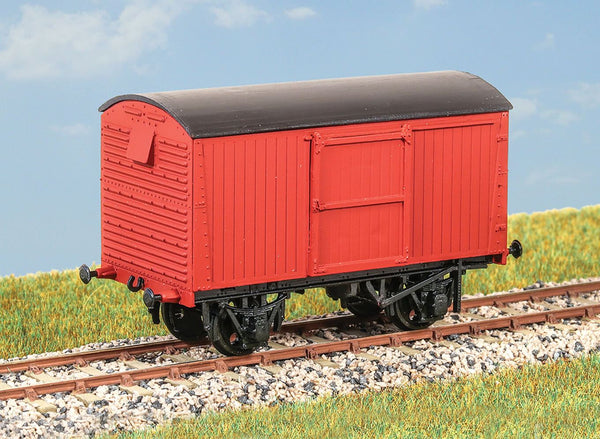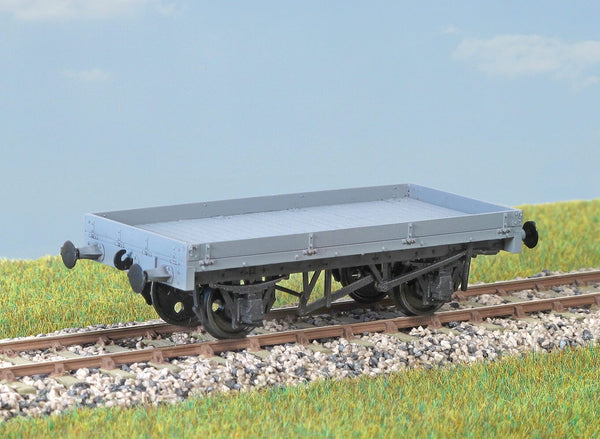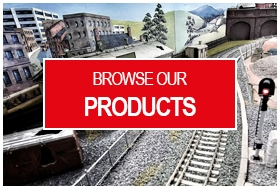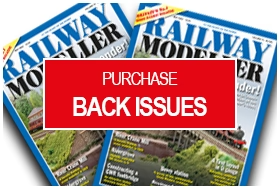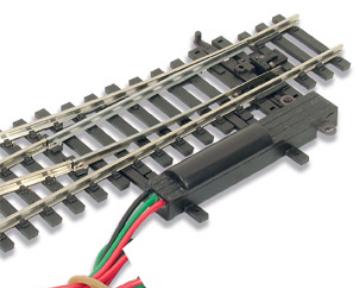BROWSE PECO PRODUCTS
Browse through our complete product portfolio.
164 Products Found
LNER Conflat Container Wagon
With DX Open Container (diagram 104) The standard LNER container wagon from the mid 1930s. In service until 1970. Open containers were widely used until the early 1960s. These finely moulded plastic wagon kits come complete with pin point axle wheels and bearings. Glue and paint will be required, along with appropriate transfers. Additional parts to enable the vehicle to be modelled incorporating modifications made to the prototypes during their working life are included where appropriate.
LNER Bogie Sulphate Wagon
Eighty of these wagons (diagram 69) were built in the 1930s to carry fertilizer from the I.C.I. Works at Billingham, Tee-side. Many ended their days carrying refuse in the Kings Cross area in the 1960s.These finely moulded plastic wagon kits come complete with pin point axle wheels and bearings. Glue and paint will be required, along with appropriate transfers. Additional parts to enable the vehicle to be modelled incorporating modifications made to the prototypes during their working life are included where appropriate.
LNER Bogie Brick Wagon
Built in 1930 (repeating a 1921 GNR design), these wagons (diagram 70) carried brick between Peterborough and London. Examples were in use until 1966. These finely moulded plastic wagon kits come complete with pin point axle wheels and bearings. Glue and paint will be required, along with appropriate transfers. Additional parts to enable the vehicle to be modelled incorporating modifications made to the prototypes during their working life are included where appropriate.
LNER Bogie Bolster Wagon
(Quad) In 1921 the NER bought a number of these wagons from the Government. They lasted until the mid 1950s. Several worked as flat wagons. These finely moulded plastic wagon kits come complete with pin point axle wheels and bearings. Glue and paint will be required, along with appropriate transfers. Additional parts to enable the vehicle to be modelled incorporating modifications made to the prototypes during their working life are included where appropriate.
LNER 21ton Twin Bolster Wagon
21 ton Twin Bolster Wagon 1943 (diagram 1/168) These wagons were used to carry short steel sections such as girders, pipes and reinforcing rods. Period 1943 to early 1970s. These finely moulded plastic wagon kits come complete with pin point axle wheels and bearings. Glue and paint will be required, along with appropriate transfers. Additional parts to enable the vehicle to be modelled incorporating modifications made to the prototypes during their working life are included where appropriate.
LNER 21ton Trestle Wagon
Converted both before and after nationalisation (diagram 1/217) from standard plate and double bolster wagons to carry steel plates too wide to be loaded flat. Period mid 1940s to early 1970s. These finely moulded plastic wagon kits come complete with pin point axle wheels and bearings. Glue and paint will be required, along with appropriate transfers. Additional parts to enable the vehicle to be modelled incorporating modifications made to the prototypes during their working life are included where appropriate.
LNER 21ton Loco Coal Wagon
Constructed in the late 1930s, these were a standard design of loco coal wagon (diagram 207). In the 1950s, they were used for general coal traffic and were finally withdrawn in the mid 1960s.
These finely moulded plastic wagon kits come complete with pin point axle wheels and bearings. Glue and paint will be required, along with appropriate transfers. Additional parts to enable the vehicle to be modelled incorporating modifications made to the prototypes during their working life are included where appropriate.
LNER 20ton Plate Wagon
Among the first with an all welded body, these wagons (diagram 1/123) were widely used for carrying steel plate and other traffic such as motor cars, farm machinery and large packing cases. Period 1940 to mid 1970s. These finely moulded plastic wagon kits come complete with pin point axle wheels and bearings. Glue and paint will be required, along with appropriate transfers. Additional parts to enable the vehicle to be modelled incorporating modifications made to the prototypes during their working life are included where appropriate.
LNER 20ton Hopper Wagon
13,645 of these wagons were built. Features the unique LNER brake gear. Represents the batch of 409 built by Hurst Nelson in 1936. Examples lasted into the 1970s. These finely moulded plastic wagon kits come complete with pin point axle wheels and bearings. Glue and paint will be required, along with appropriate transfers. Additional parts to enable the vehicle to be modelled incorporating modifications made to the prototypes during their working life are included where appropriate.
LNER 20ton Brake Van Toad E
900 of these vans were built between 1930 and 1936. Seen all over the former LNER system, they lasted in service into the mid 1960s. These finely moulded plastic wagon kits come complete with pin point axle wheels and bearings. Glue and paint will be required, along with appropriate transfers. Additional parts to enable the vehicle to be modelled incorporating modifications made to the prototypes during their working life are included where appropriate.
LNER 12ton Van
Introduced in the late 1930s, these wagons (diagram 25) were used for general traffic until the late 1960s. Being equipped with the vacuum brake, they were suitable for express goods services. These finely moulded plastic wagon kits come complete with pin point axle wheels and bearings. Glue and paint will be required, along with appropriate transfers. Additional parts to enable the vehicle to be modelled incorporating modifications made to the prototypes during their working life are included where appropriate.
LNER 12ton Low Sided Wagon
Almost 1400 of these wagons (diagram 1/109) were built in the mid to late 1930s, to carry loads such as machinery, packing cases and road vehicles. Examples were in service into the early 1960s. These finely moulded plastic wagon kits come complete with pin point axle wheels and bearings. Glue and paint will be required, along with appropriate transfers. Additional parts to enable the vehicle to be modelled incorporating modifications made to the prototypes during their working life are included where appropriate.
